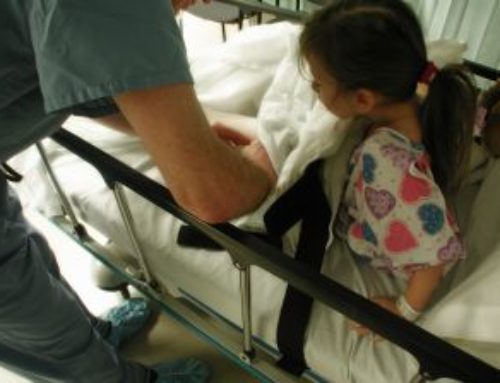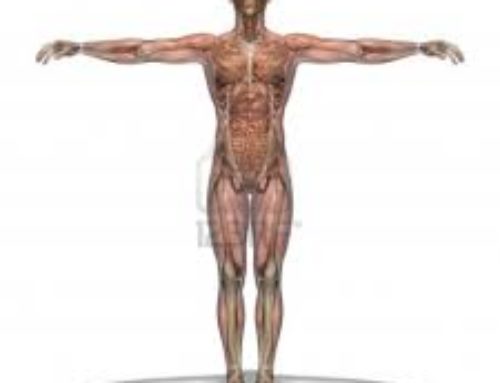
Recognized as a severe and disabling brain disorder, Schizophrenia is a chronic, psychiatric condition which impairs a patient’s cognitive function. Schizophrenia is found in populations all over the world and is estimated to affect 1% of Americans. The disorder is distributed equally between women and men but frequently appears in men at a younger age, often in their late teens to early twenties and in women more often in their twenties to early thirties. The disorder is found in ethnic groups across the globe.
The condition has severe lasting implications for social function and is characterised by a number of symptoms ranging from delusions and hallucinations to a lack of motivation and social isolation. Sufferers commonly experience a sudden onset of psychotic symptoms which distorts sensory perception, rendering them incapable of separating reality from their imaginative and perceived experiences.
Whilst multiple treatments are effective in reducing the symptoms and controlling the illness in some patients, unpleasant side affects or other personal reason may cause patients to cease treatment and in some individuals treatment may not be helpful.
Whilst schizophrenia in itself is not terminal, the actions of individuals suffering from the condition may cause harm to themselves or others and the behavioral changes can be very distressing for both the patient and their family and friends.
Schizophrenia can be managed with antipsychotic pharmacotherapy treatment or cognitive behavioral intervention or both. In some individuals the manifestation of schizophrenia presents as a single psychotic episode, others may have several of these psychotic episode between which they can enjoy a fulfilling life and others may suffer from chronic schizophrenia where they are unable to completely recover and require treatment to control symptoms throughout their life. Whilst ongoing research may offer hope for long term sufferers in the future at present it is estimated that only one out five individuals suffering from schizophrenia will make a full recovery.
Although schizophrenia affects men and women with equal frequency, the disorder often appears earlier in men, usually in the late teens or early twenties, than in women, who are generally affected in the twenties to early thirties. People with schizophrenia often suffer terrifying symptoms such as hearing internal voices not heard by others, or believing that other people are reading their minds, controlling their thoughts, or plotting to harm them. These symptoms may leave them fearful and withdrawn. Their speech and behavior can be so disorganized that they may be incomprehensible or frightening to others. Available treatments can relieve many symptoms, but most people with schizophrenia continue to suffer some symptoms throughout their lives; it has been estimated that no more than one in five individuals recovers completely.
Some people have only one such psychotic episode; others have many episodes during a lifetime, but lead relatively normal lives during the interim periods. However, the individual with “chronic” schizophrenia, or a continuous or recurring pattern of illness, often does not fully recover normal functioning and typically requires long-term treatment, generally including medication, to control the symptoms.
Signs and Symptoms
Individuals with schizophrenia can suffer from a number of different symptoms that are described as positive symptoms, negative symptoms and cognitive symptoms.
Positive symptoms are the very obvious indicators of schizophrenia which severely impact the patient’s perception of reality, such as hallucinations and delusions. Negative symptoms are less conspicuous such as an speak and express emotion and those symptoms classified as Cognitive affect the patient’s memory, attention span and the ability to plan or organize.
Positive Symptoms include:
Distortion of Reality
Individuals suffering from schizophrenia may form a markedly unique perception of reality as created by multiple hallucinations, delusions and disordered thinking. This atypical understanding of the world around them can cause sufferers to be anxious, frightened and to behave erratically, sometime swinging between distant and detached to vigilant and alert.
Hallucinations
Hallucinations are disturbances of perception that induce an individual to see, hear, smell, feel or taste things that are not sensed by others. Occurrences such as identifying a smell not present or feeling like one is being touched when they are not, are types of hallucinations experienced by individuals suffering from schizophrenia. The most prominent hallucinations in sufferers, is hearing voices that describe their actions, give them orders, have conversations or give warnings in regards to impending danger.
Delusions
Delusions are unusual false beliefs held by the individual, not normally developed through cultural or environmental influences and that lack reason and can not be changed by contrary evidence. Such delusions can vary greatly between individuals and psychotic episodes ranging from believing they are being controlled, having their thoughts broadcasted or that they or loved ones are being undeservedly persecuted. Delusions can also cause sufferers to believe they are famous historical figures and that people in television are sending specific messages to them.
Disordered Movement.
Individuals may experience a number of movement disorders as a result of schizophrenia such as; being clumsy and uncoordinated, making involuntary movements and unusual or repetitive motions. In extreme and rare situations patients may cease moving all together.
Negative Symptoms include:
Reduced Emotional Expression
People suffering from schizophrenia will commonly experience reduced expression, interaction, motivation and enjoyment. Described as the “flat effect”, individuals may cease showing normal emotional expressions, speak in a monotone voice and appear apathetic and depressed. A further lack of responsiveness can include social isolation and speaking infrequently along with a significant decrease in their interest and enjoyment of life
Decrease in Activity
People with schizophrenia can often neglect basic hygiene and require assistance to undertake normal daily activity. Some patients may spend entire days doing nothing at all and purposely avoid engaging in planned activities.
Cognitive Symptoms include:
Disordered Thinking
Schizophrenia will often affects a patient’s concentration and ability to focus making their thoughts disorganized, fragmented and illogical. Sufferers are easily distracted, have trouble identifying relevant thoughts and may stop mid sentence due to a complete loss of thoughts. Patients also suffer from memory difficulties, specifically the ability utilise recently acquired information immediately, and lack the ability to absorb, interpret and use information to make decisions.
Causes
No single cause has been identified as being responsible for schizophrenia. It is believed that a combination of environmental and genetic factors, which differ between individual sufferers, may result in a higher predisposition and eventual onset of schizophrenia.
Multiple genes are implicated in causing schizophrenia, which is known to run in families, but the specific genes and the method by which schizophrenia is genetically transposed still remain unknown. Along with genetic factors a number of prenatal and early childhood complications have been correlated with individuals developing schizophrenia. Such complications may cause abnormal development of the brain, causing biochemical imbalances, difference in brain structure and neurological abnormalities which may ultimately cause schizophrenia. Furthermore, stressful environmental conditions, malnutrition, substance abuse (especially marijuana, amphetamines and cocaine) and exposure to viruses have all been implicated in increasing an individual’s risk of developing the brain disorder.
Complications
Due to the psychotic nature of schizophrenia there are a number of further complications sufferers may have to deal with. One such issue concerns substance abuse of narcotics, alcohol and nicotine. Narcotics in particular can worsen symptoms of schizophrenia and can reduce the effectiveness of treatment and medication. People who have been diagnosed with schizophrenia also have a higher prevalence of smoking than the normal population. When a smoker attempts to quit their schizophrenic symptoms tend to worsen before getting better and some research indicates that nicotine can interfere with medication, requiring individuals to take higher doses of medication.
Difficulties with memory, cognitive function, motivation and participating in social activities, create a multitude of social issues and hinder a patients ability to lead a normal life. Individuals with schizophrenia can suffer greater emotional stress on top of already debilitating psychotic episodes and require a lot of support from friends and family. Due to the nature of the illness, sometime individuals may be perceived as lazy, apathetic and disinclined to create a more meaningful existence, rather than suffering from a severe mental disorder.
Whilst treatment can be very effective in allowing patients to lead normal lives the nature of schizophrenia tends to create problem for individual trying to stay on the medication. Memory lapses and disordered thinking along with negative side affects or denial of being ill may result in patients refusing or forgetting to take medication, ultimately allowing for an increase in the severity and frequency of psychotic episodes. Also certain treatments may not be effective for a patient and as such an effective treatment program needs to be found and adhered to through a good patient-doctor relationship.
There is a higher incidence of suicide amongst individuals diagnosed with schizophrenia but it is hard to predict on an individual case basis whether sufferers are likely to commit suicide. In some rare cases people suffering from schizophrenia may become violent, however this is more common in substance abusers and individuals with a history of violence preceding the onset of schizophrenia. Individual who do display violent behaviors tend to do so at home and towards family members.
Some symptoms of schizophrenia may be exhibited by normal individuals on occasion an also by people under the influence of certain narcotics. Conversely people with schizophrenia may behave completely normal despite having out of the ordinary delusion and hallucinations. Furthermore people suffering from other mental disorders such as depression or bipolar may also exhibit similar symptoms making the diagnosis of schizophrenia even more difficult.
Possible Treatment Methods
Primarily there are two methods to treat schizophrenia, antipsychotic medication and psychosocial therapy. These are most commonly used in combination to combat the symptoms if schizophrenia. In most cases treatment is continued throughout the patient’s life to control psychotic episodes.
Antipsychotic Medications
Often antipsychotic medications can have negative side effects for patients and some medication will be more effective then others depending on the individual. Antipsychotic medications are primarily aimed at alleviating the symptoms of schizophrenia classed as positive symptoms.
Long-term side effects of antipsychotic medication can cause tardive dyskinesia (TD), which poses a serious problem for patients. This disorder causes involuntary movements of the mouth, lips, tongue and in some cases the trunk arms and legs. The disorder is more common in the older drugs developed in the 1950’s but can occur in patients taking the more modern medications.
Some of the older antipsychotic medications include:
Chlorpromazine (Thorazine)
Haloperidol (Haldol)
Perphenazine (Etrafon, Trilafon)
Fluphenzine (Prolixin)
Negative side effects of these medications can be somewhat severe, causing rigidity, muscle spasms, tremors, and restlessness.
More recently available antipsychotics have less side effects, one however; Clozapine (Clozaril) has a very dangerous side effect but is often a last resort for patients not responding to other treatment. Clozapine can cause a loss of the white blood cells that fight infection, a dangerous complication that is called agranulocytosis. The danger associated with taking this medication require that the patients white blood cell count be monitored weekly, a process that is expensive and time consuming.
Other, more modern medications include:
Risperidone (Risperdal)
Olanzapine (Zyprexa)
Quietiapine (Seroquel)
Sertindole (Serdolect)
Ziprasidone (Geodon)
Whilst it is less common for these drugs to produce the side effects found in the older medications and whilst they do not cause agranulocytosis, patients may experience weight gain and possibly an increased risk of diabetes and high cholesterol. In some cases patients may be recommended to take antidepressants to treat this possible complication of the disorder.
Generally sufferers will experience an improvement upon taking medication, with a decrease in agitation, hallucinations and delusions, but in the first few days can face a number of problems with dizziness, becoming drowsy, blurred vision, menstruation, sun sensitivity skin rashes and an increased heartbeat.
Psychosocial Treatment
In the majority of cases, psychosocial treatment is used for individuals who have identified an effective antipsychotic medication that they are taking regularly to manage their schizophrenia. There are numerous different forms of psychosocial treatment which are all centered on rebuilding a normal, healthy and happy life for the patient. This rebuilding involves working with patients to address difficulties with motivation, socialization, communication, self care and hygiene, building relationships and identifying relapse triggers and indicators to avoid them and learning coping mechanisms to deal with their illness.
Treatment can involve:
Rehabilitation: getting patients to develop skills and undertake training to allow them to function in the workplace.
Illness Management: learning about the illness and implications can empower individual to take a more proactive role in managing their own illness, encouraging them to stay on medication, avoid substance abuse and to address other complications of the illness.
Family Education: educating family members is a vital step towards improving the patient’s life and also those of close family members. This allows the patient to receive ideal support and also give the family coping mechanism to deal with schizophrenic behavior.
Cognitive Behavioral Therapy: is one-on-one psychotherapy, designed to teach patients how to test unreal thoughts, delusions and hallucinations enabling them to separate these from reality. Furthermore it provides them with tools and skills to feel happy and motivated.
Self-Help Groups: this allows for patients and families to receive more support and to know that they are not alone. Sharing stories, support and friendship assist patients and families in avoiding isolation and offers greater enjoyment with similar people who are less likely to judge each other.
Alternative Therapies
No alternative therapies are available for the affective treatment of schizophrenia.






Leave A Comment